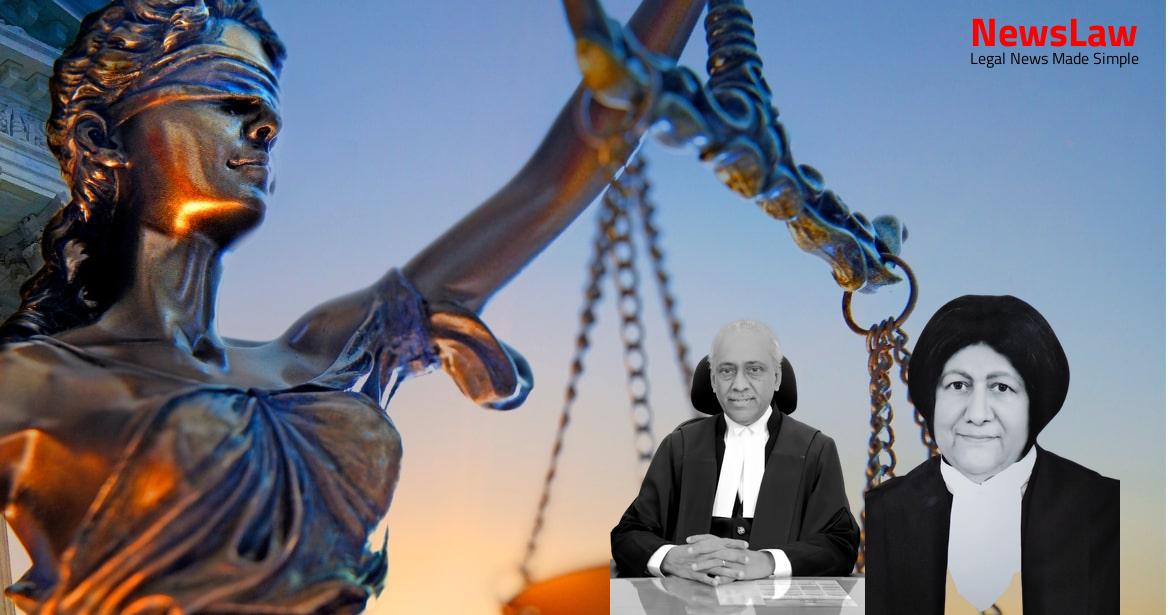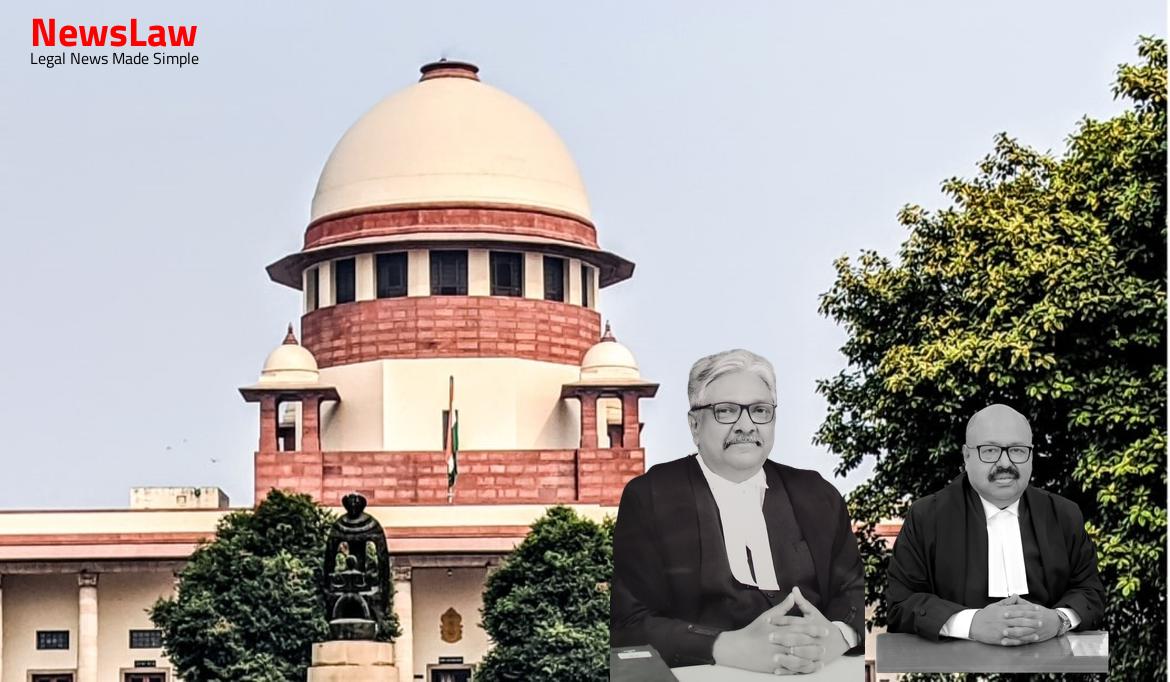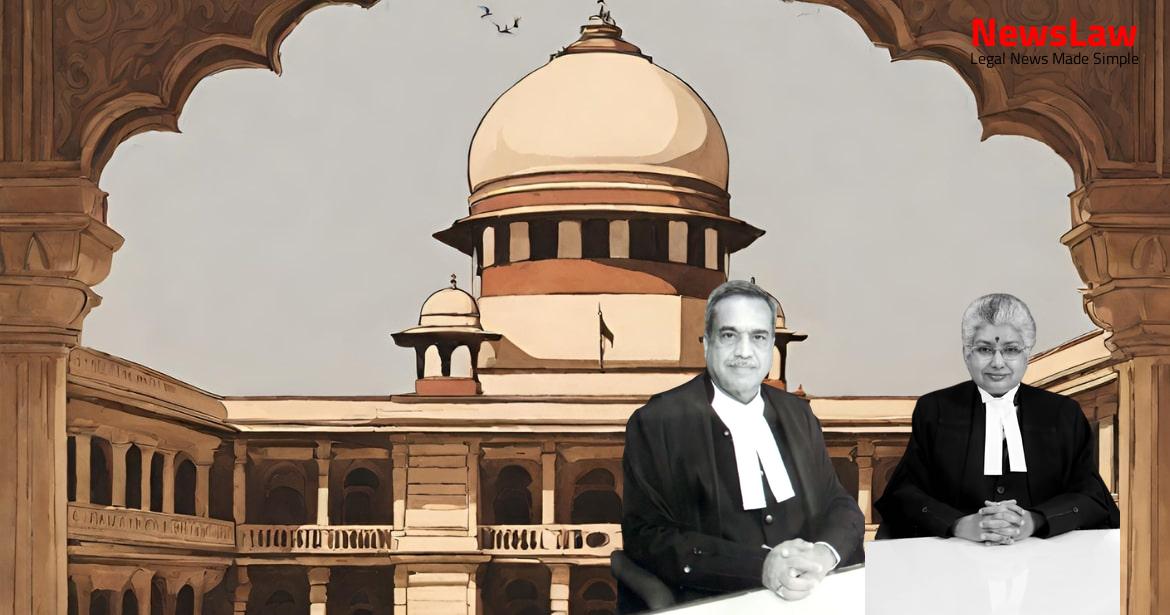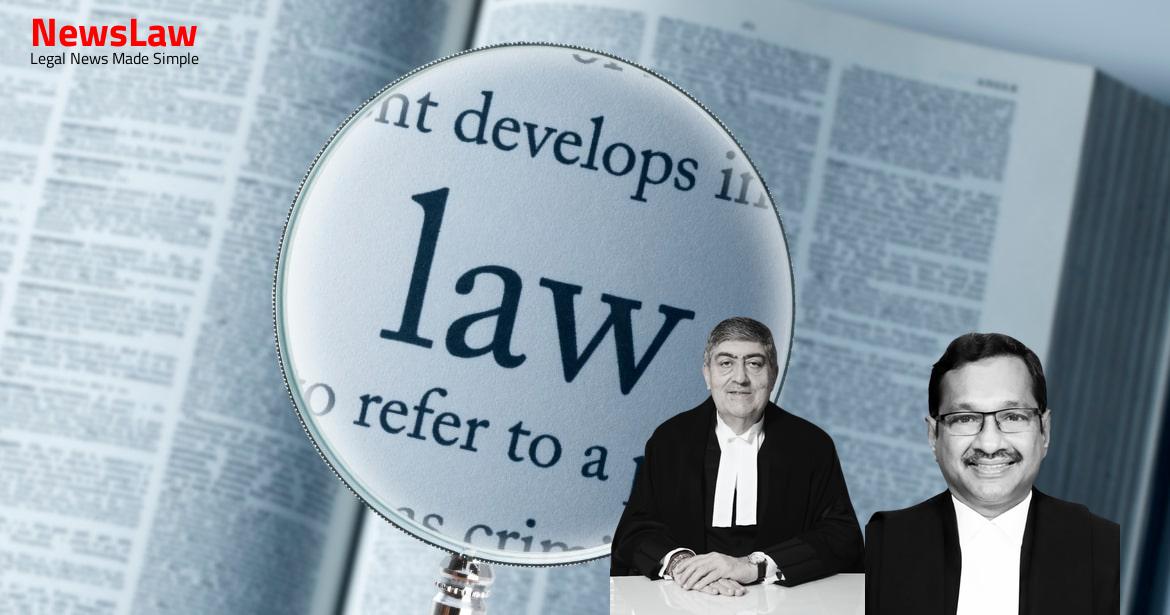Explore the in-depth legal analysis conducted by the Court regarding the discrepancy in retirement ages within the education sector. The Court’s examination of the State Government’s policies sheds light on the intricacies of constitutional provisions and the alignment of regulations. Discover how the Court’s ruling affects the governance of retirement age policies in educational institutions.
Facts
- The Court noted that the State of Kerala had issued a Government Order whereby the retirement age of employees of all State public sector undertakings (PSUs) and Boards was enhanced to 58 years.
- The Appellants contended that the State Government’s failure to extend the same benefit to them was discriminatory and violative of Article 14 of the Constitution of India.
- The Court observed that the State Government’s refusal to increase the retirement age of the Appellants was arbitrary and without any valid reason.
- The Court held that the Appellants were entitled to the benefit of an enhanced retirement age of 58 years similar to employees of State PSUs and Boards.
- The Full Bench of the High Court of Kerala held that universities and colleges in Kerala must comply with UGC Regulations adopted by the State from 18th September 2010.
- The Appellants filed a writ appeal (Writ Appeal No 734 of 2016) after the Single Bench of the High Court dismissed their writ petition.
- The Division Bench of the High Court, in the impugned judgment, dismissed the writ appeal and noted that State Governments have the discretion to accept the scheme under UGC Regulations.
Also Read: Interpretation of Corporate Guarantor under IBC
Arguments
- Mr. Jaideep Gupta argued that the adoption of pay scale by the State Government is not exclusively referable to the UGC Regulations.
- The contention was rejected by the Supreme Court in Jagdish Prasad Sharma & Others v. State of Bihar & Others.
- UGC Regulations were modified by an order of Ministry of Human Resource Development withdrawing the regulation enhancing the age of superannuation to 65 years.
- The Central Government clarified that the age of superannuation should not be linked to the benefits conferred by the UGC Regulations.
- Judgment in Jagdish Prasad Sharma case established that the age of superannuation fixed by the Rules under Article 309 of the Constitution cannot be modified by UGC Regulations.
- After Kerala adopted the UGC Regulations, teachers claimed the right of superannuation as per those regulations.
- UGC Regulations issued on 30th June 2010 cover minimum qualifications for teachers, pay-scale, pay-fixation formula, and age of superannuation in educational institutions.
- The Government of Kerala implemented the pay scale recommended by the UGC Regulations on 10th December 2010.
- Salary enhancement proposed by UGC Regulations involved the Central Government paying 80% and the State Government paying 20% of the enhancement.
- The State Government was accused of accepting salary enhancement grants from the Central Government but not complying with the condition of enhancing the retirement age of teachers.
- Mr. Jaideep Gupta argued that the State Government did not avail contributions from the Central Government under the 2010 Scheme, contradicting the High Court’s judgment.
- The State Government covers the expenses for college teachers’ salaries without aid from the Central Government.
- No financial assistance is received by the State Government from the Central Government for the UGC Scheme.
Also Read: Quashing of FIR and Charge-sheet: Legal Analysis
Analysis
- The UGC Act, 1956 was enacted to coordinate and determine standards in universities.
- The Act established the University Grants Commission (UGC).
- Section 20 of the UGC Act states that the Commission shall be guided by directions on policy given by the Central Government.
- The Ministry of Human Resource Development framed the UGC Regulations under the powers conferred by the UGC Act.
- Regulation 2.0.0 of the UGC Regulations establishes the minimum qualifications for the appointment of teachers and academic staff.
- The UGC Regulations also define the revised scale of pay and service conditions for teachers and staff in higher education.
- The Single Bench correctly identified that the issue at hand was not governed by the UGC Act, but rather by the State’s authority to determine the age of retirement under Article 309 of the Constitution of India.
- The decision to withdraw the regulation on the age of superannuation was made by the Central Government in consultation with the States, respecting the States’ authority to set service conditions for their employees.
- The Policy of the State Government determines the retirement age for teachers in aided affiliated colleges and universities based on statutory provisions under Article 309 of the Constitution.
- The UGC regulations must align with directions from the Central Government under Section 20 of the UGC Act.
- In cases of dispute between the UGC and the Central Government regarding national policy purposes, the Central Government’s decision prevails.
- A circular issued by the Ministry of Human Resource Development on August 14, 2012, clarified the Central Government’s authority under Section 20 of the UGC Act.
- The Division Bench of the High Court found that issues raised in the appeals were already concluded by a previous judgment.
- The UGC is required to follow the directions issued by the Central Government on matters of national policy as per the UGC Act.
- The judgment in Jagdish Prasad Sharma case emphasized the mandatory nature of the UGC to adhere to the Central Government’s directions.
- The Court stated that discussions in a judgment should not be taken out of context and interpreted as the Court’s dictum.
- The State is not obligated to accept or follow UGC Regulations.
- In the case of P. Suseela & Ors. v. University Grants Commission & Ors., the Court clarified that directions under Section 20 of the UGC Act are aimed at ensuring coordination and determination of standards.
- There are no grounds to interfere with the concurrent findings of the Division Bench and the Single Bench of the High Court of Kerala.
- The appeal has been dismissed.
Also Read: Judicial Promotion Dispute Resolved
Case Title: DR. J. VIJAYAN Vs. THE STATE OF KERALA (2022 INSC 783)
Case Number: C.A. No.-005037-005037 / 2022



